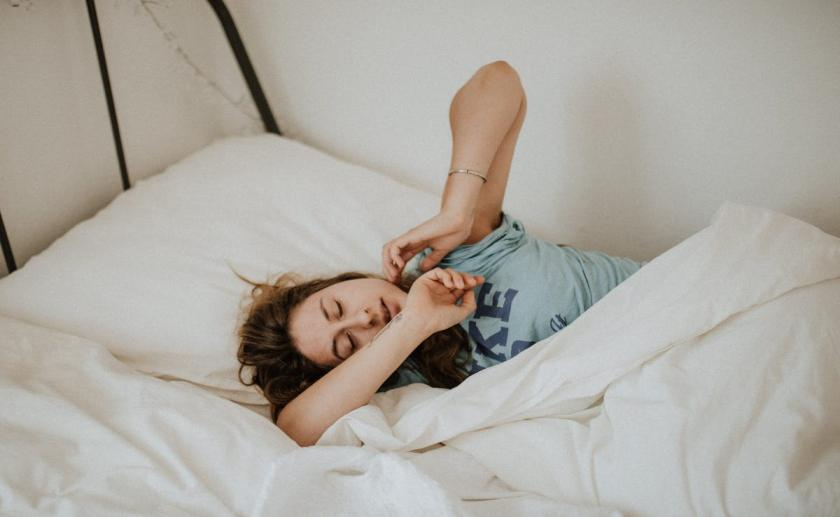
Few things feel more like home than a warm bed on a winter morning. Don’t feel bad. You’re not alone in not wanting to leave it. Here’s what’s happening inside you and what you can do about it.
To start with, your vitamin D levels are low. Vitamin D plays many roles in the body, one of which is sleep regulation. Vitamin D levels drop because of shorter daylight hours and less powerful sun rays. The shortage of Vitamin D can negatively affect sleep. Secondly, your melatonin(褪黑激素) levels are high. Melatonin plays an important role in regulating sleep cycles. An increase in melatonin sends you off to sleep at night. Melatonin is produced for a longer time in winter when nights are long than in summer when nights are short. What’s more, researchers discovered a sensory circuit in the brains of fruit flies that blocked the brain cells, promoting wakefulness. This circuit is activated only at cold temperatures. This helps explain why — for both flies and humans — it is so hard to wake up in the morning in winter.
Whether or not you understand the science behind sleep and waking up early in winter, there are science-backed approaches you can use to wake up early feeling refreshed.
Try getting more vitamin D. The first thing you can do to wake up earlier is to fight vitamin D deficiency. How? Make an effort to get more sunshine on your skin. If the cold weather prevents going outside, you can sunbathe next to an open window for five minutes to boost your vitamin D levels for the day. Lighting up your room in the mornings is the second thing you can do. Opening your bedroom lights in the morning is about more than making you too uncomfortable to keep sleeping. The body stops melatonin production when it starts to sense light, which reduces that tired feeling. You can also put your heating on a timer. Then, increase the temperature about an hour before you want to wake up.
本时文内容由奇速英语国际教育研究院原创编写,未经书面授权,禁止复制和任何商业用途,版权所有,侵权必究!(作者投稿及时文阅读定制请联系微信:18980471698)1.What can’t be learned from Paragraph 2?
A Less light means worse sleep.
B Short days make you feel sleepier.
C The cold makes you feel less awake.
D Quieter environment makes you sleepier.
解析:选D。D细节理解题。通读第二段,第一到四句描述的是冬天光照时间短导致人体内维生素D水平下降,从而影响睡眠质量;第五到八句描述的是冬天黑夜长白昼短,导致人体内褪黑素水平高,人容易犯困;最后三句描述的是冬天的低温对人体的影响,低温让人更不愿意醒来。因此只有D项未被提及。故选D。
2.What does the underlined word “deficiency” probably mean?
A Risk.
B Shortage.
C Disadvantage.
D Benefit.
解析:选B。B 词义猜测题。根据划线词所在句子的前一句“Try getting more vitamin D.”试着获取更多维生素D以及上文第二段中的“Vitamin D levels drop”以及“The shortage of Vitamin D”可推断,划线词表示“缺乏,短缺”,本句表达的是“早起的第一件事就是对抗维生素D缺乏”。故选B。
3.What does the author advise us to do in the cold weather?
A To try to avoid going out of our home.
B To switch on the lights to make us comfortable.
C To get more sunshine near an open window.
D To make our bedroom warm after we get up.
解析:选C。C细节理解题。根据第四段的“you can sunbathe next to an open window for five minutes to boost your vitamin D levels for the day.”可知,如果寒冷的天气使你无法外出,那么你可以在开着的窗户旁晒五分钟太阳浴。故选C。
4.Which section of a newspaper may this text appear?
A Entertainment & Education.
B Lifestyle & Health.
C Science & Technology.
D Health & Sports.
解析:选B。B推理判断题。本文主要从科学角度告诉我们为什么冬天起床异常困难以及解决办法,属于生活方式与健康方面的内容。故选B。